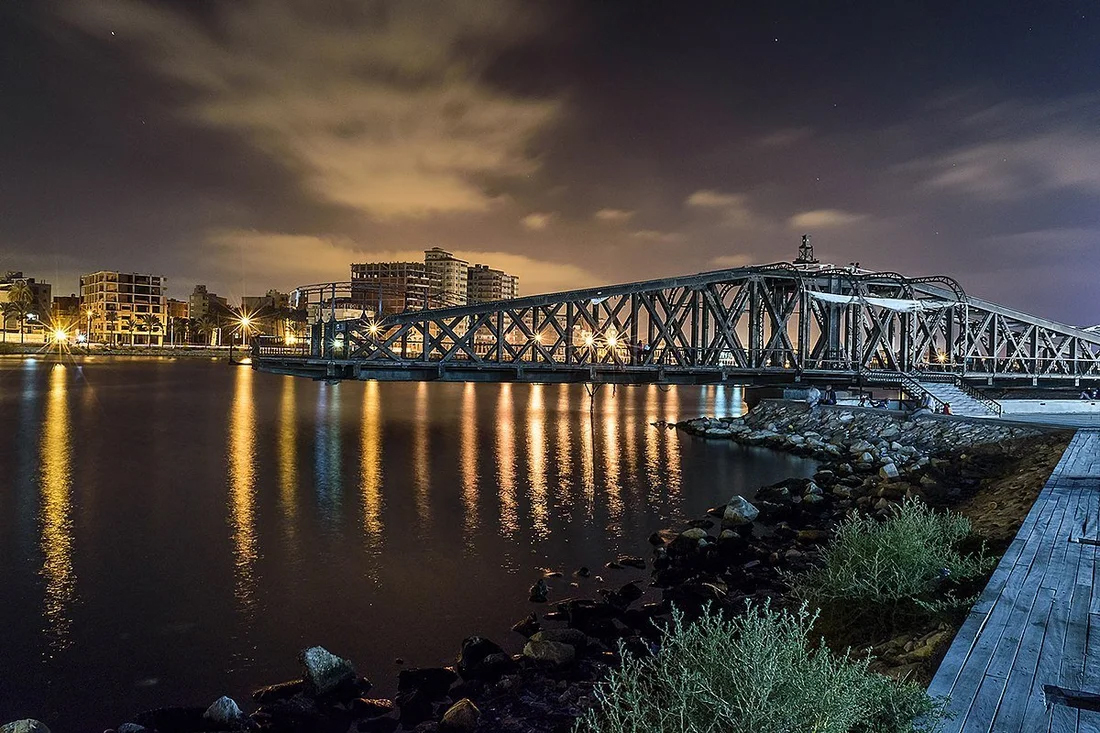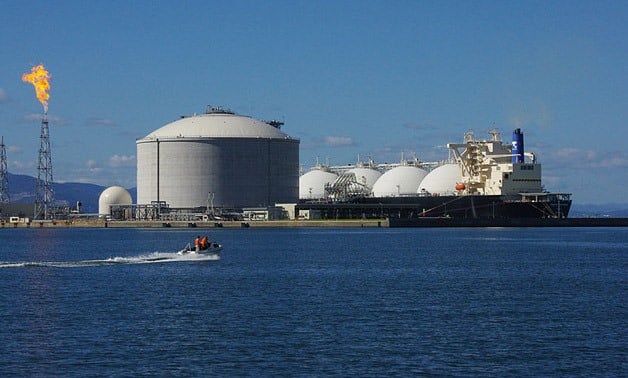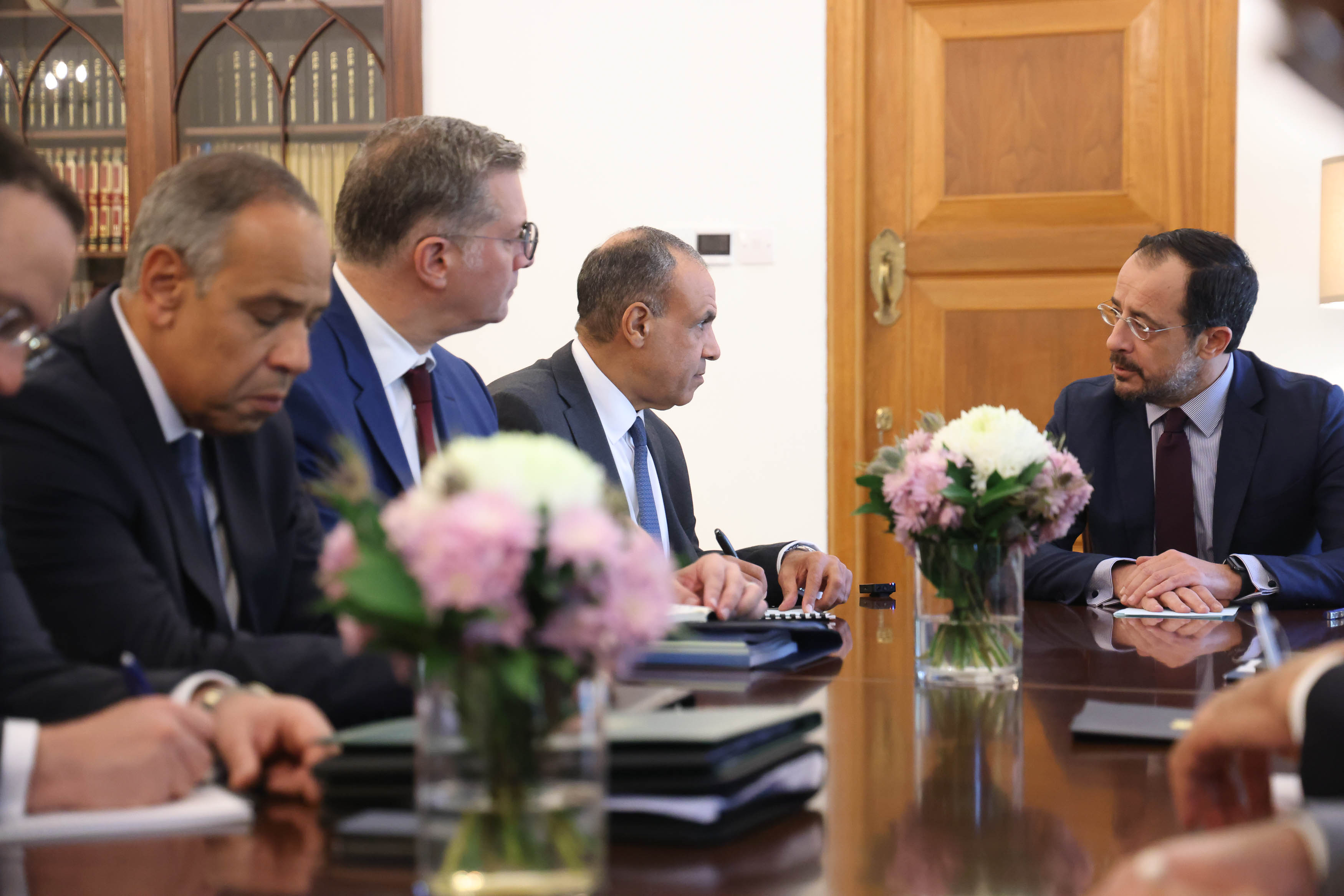Natural gas from under the seabed of Cyprus’ exclusive economic zone (EEZ) will be exported to Europe in 2027, Egypt’s Petroleum Minister Karim Badawi said on Friday.
Speaking after a meeting between members of the Cypriot and Egyptian governments in Nicosia, he said his country plans to “accelerate the process to make it possible to transport Cypriot natural gas” to Egypt to be liquefied.
This, he said, will allow for natural gas from the Kronos gas field, which is located in Block 6 of Cyprus EEZ, to “be ready in 2027 for delivery to Europe”.
“We are all collectively committed to delivering the first Cypriot gas through Egypt’s terminals to Europe by 2027. We are all working together, with unity and cooperation, to achieve this,” he said.
He added that the Egyptian government considers the matter to be of “strategic importance”, and said the process of extraction of natural gas off the coast of Cyprus, liquefaction in Egypt, and subsequent export to Europe will “make Cyprus a major exporter of natural gas to Europe”.
He added that the matter is being “closely monitored” by Egyptian President Abdel Fattah al-Sisi.
“I came to Cyprus today to convey this message of progress and to expedite the completion of the relevant agreements, so that the final investment decision can be made by the end of the year,” he said.
In this, he was referring to the final investment agreement regarding the Kronos field, which is set to be signed by the Egyptian government, which was in February designated as the “host government” for Block 6 of Cyprus’ EEZ, and the consortium comprising French multinational corporation Total and Italian energy company Eni.
Given the proximity of the Kronos reservoir and Block 6 to Egypt’s Zohr gas field, which Eni also operates, Eni will be able to use its own infrastructure to take the Cypriot natural gas to the Segas liquefied natural gas (LNG) terminal in the Egyptian port city of Damietta.

Cypriot Energy Minister George Papanastasiou said after Friday’s meeting that he expects that agreement to be signed “in the coming days”.
He explained that the planned agreements “cover the entire supply chain” from the liquefaction of the natural gas, which will take place in Damietta, through to the export of the LNG to Europe.
Given that this is the case, he said, it is also expected that a final development and production plan for the Kronos field will soon be jointly produced by the governments of Cyprus and Egypt.
He said that this matter is now “entering a critical phase”.
“The political guidelines have been set, and we are moving forward in coordination with the companies with the aim of making a final investment decision by the end of 2025 and having the first production of natural gas during 2027,” he said.
He also said the project will be a “milestone for the implementation of the goal we share with Egypt; to create a new energy corridor in the eastern Mediterranean, while strengthening the energy security of the European Union”.

On this matter, President Nikos Christodoulides made reference to the fact that Cyprus will hold the Council of the European Union’s rotating presidency the first half of next year, and said that one of the goals he has set for that six-month period is to bring the EU closer to the eastern Mediterranean region, “and of course closer to Egypt”.
To this end, he pointed out that Cyprus will hold a meeting of heads of government of all 27 EU member states and of other countries in the region on April 23 next year.
Egyptian Foreign Minister Badr Abdelatty repaid the compliment, saying that “Cyprus is considered to be one of the most important countries for Egypt, especially in the eastern Mediterranean region”.
Badawi was then asked about the prospect of further cooperation between Cyprus and Egypt on the matter of energy and said that while Friday’s meeting had focused mainly on the Kronos gas field, “it is not surprising that we are also working on cooperation regarding the development of the Aphrodite gas field through the facilities in Egypt”.
He said that on this matter, there has been “significant progress”, with the Aphrodite gas field being located in Block 12, the southernmost block of Cyprus’ EEZ.
“Our cooperation in the energy sector with the Republic of Cyprus is very important and is expanding daily. We are here to support the Republic of Cyprus in the full development of its energy reserves, so that it can exploit them and make them available to its citizens and to European markets which need energy,” he said.

Seabed surveys to find a sinking point for the pipeline which will take natural gas from Cyprus’ EEZ to Egypt for liquefaction began in June, with the initial aim being for natural gas from the Aphrodite gas field to be taken to Damietta.
That came after the governments of Cyprus and Egypt, as well as American multinational corporation Chevron, Israeli energy company NewMed Energy, and the BG Group, which is owned by Royal Dutch Shell, signed an agreement which, according to the Cypriot government, established “the framework for the effective commercialisation” of the gas in the field.
That agreement was signed alongside the agreement relating to Block 6 in February.






Click here to change your cookie preferences